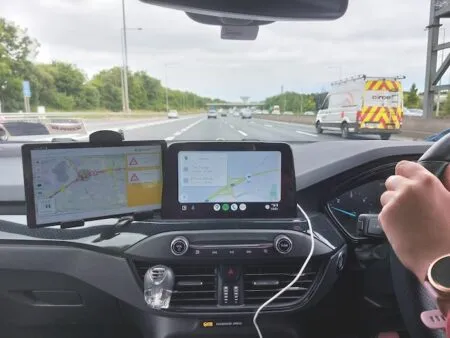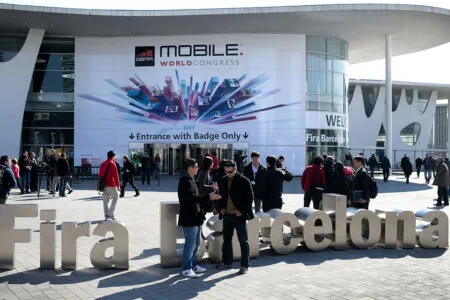Australia’s largest telecommunications company Telstra, in partnership with connected vehicle technology developer Cohda Wireless, has successfully conducted the country’s first test of vehicle-to-pedestrian (V2P) technology over a mobile cell phone network in the state of South Australia.
With the cooperation of the South Australian government, the trial demonstrated vehicles interacting directly with pedestrians’ and cyclists’ cell phones, providing early-warning collision detection and alerts via an application installed on their smartphones. The technology was tested using some common scenarios that occur every day in Australia: a car and a cyclist approaching a blind corner, a car reversing out of a driveway, and a car approaching a pedestrian crossing.
Of the 1,292 deaths that occurred on Australia’s roads last year, 212 involved pedestrians or cyclists. Telstra, Cohda and the South Australia Department of Planning, Transport and Infrastructure are all partners of the Australian Driverless Vehicle Initiative (ADVI), a multi-stakeholder partnership that is aiming to bring driverless vehicles safely and successfully to the country’s roads.
“Our vehicle-to-everything (V2X) project, which includes vehicle-to-infrastructure (V2I) and vehicle-to-vehicle (V2V) in addition to V2P, seeks to make Australian roads safer, more efficient, and better-prepared for the future of autonomous vehicles,” explained Telstra’s chief technology officer, Håkan Eriksson.
“The most important outcome of V2X technology is the increased safety for road users, as the impact of human error can be minimized by helping vehicles communicate with each other and react to their surroundings. This is the first time V2P technology has been trialled in Australia on a 4G network, and is an important step on the journey to fully-autonomous vehicles on Australian roads.
“This follows our successful trials of V2I in October 2016, and V2V in February 2017, also completed in partnership with Cohda. As operators of Australia’s largest and fastest mobile network, we believe our 4G and future 5G networks can play a vital role in supporting the faster roll-out of intelligent transport systems and V2X applications, making implementation of the technology cheaper and more efficient.”
Cohda’s CEO, Paul Gray, added, “What we have achieved highlights the impact V2X technology can have on our community. Giving vehicles 360° situational awareness and sharing real-time driving information is the only way we can create safer roads for the future. Our ongoing partnership with Telstra also demonstrates our ability to deliver cellular-V2X (C-V2X) solutions, an important part of the complete V2X system.”




